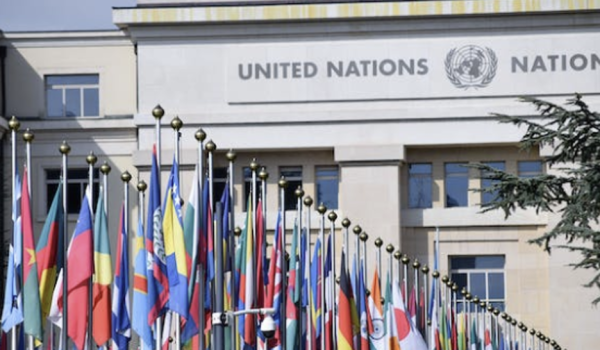Scholars and academics could argue vehemently that the Scout Method is the epitome of non-formal education. But what really is the Scout Method, and as ideal and ethical as it may be, is it still applicable in this day and age?
The Scouts through their numerous organizations all around the world, and with over forty million members, are involved in a myriad of activities. Outdoor activities like camping, hiking and sports are synonymous with Scouting. Scouts are also actively involved in community service and supporting the needy in society. All these activities have a larger purpose within the Scout Movement – to be educated and to educate future leaders, to make the world a better place. In his final letter to the Scouts of the world, the founder of Scouting and the Chief Scout of the World, Lord Baden-Powell of Gilwell said, “Try and leave this world a little better than you found it.”
Baden-Powell’s book Scouting for Boys: A Handbook for Instruction in Good Citizenship became the Scouting bible of sorts. The Scout Method consists of certain key elements, and over the years these have received their fair share of praise as well as criticism. There is much merit in the Scout Law and Promise, and over the years, the Scouts’ commitment to serving their communities has been a clear manifestation of being dutiful to God, self, and others. However, the Scout Law and Promise has invited some controversy.
Spirituality holds an important role in the Scout Movement, and being devoted to faith is a central part of the Scout Law and Promise. Baden-Powell, the founder of the Scout Movement, believed that having faith in a higher power was integral to the development of youth. And because of this religious emphasis, Scout organizations with religious affiliations began to be formed around the globe. In the early decades of the Scout Movement itself, Roman Catholic-only Scout organizations were established. Over the years, this ostracized Scouts of atheistic or agnostic backgrounds. This has led some countries like France and Denmark to officially segregate their Scout organizations as religious or non-religious. The controversy of faith has even led the Dutch Scouts to make the reference to God in the Scout Promise and Law optional.
Baden-Powell felt that youth could learn a lot from what he believed was God’s creation – nature, and what God’s wish is – to help others. In the initial decades of the Scout Movement, in the 1900s-1940s, spirituality was synonymous with being faithful to a religion. Today, many critics challenge the emphasis on religion in the Scout Method. And this exclusion is not merely limited to agnostics and atheists, but homosexuals as well. For example, the Boy Scouts of America openly forbids membership of adult leaders who are atheist, agnostic, or homosexual.
The Scout Method places a strong emphasis on learning by doing. Scouts are seen all over the world involved in activities like hiking, camping, backpacking, sports, and many others. In addition to all these activities, the Scouts are deeply involved in community service and giving back to the impoverished members of the community. Often times, Scout organizations are seen volunteering at soup kitchens, helping clean up public parks or beaches, volunteering at hospitals, joining in eco-friendly drives, and many other causes. One such example is the Messengers of Peace initiative, set up and led by the World Organization of the Scout Movement – the simple yet powerful campaign encourages Scouts and non-Scouts alike from around the globe to organize and contribute in small ways towards the betterment of the world. Through the Messengers of Peace initiative, the Scouts have cumulatively contributed more than 10 million service hours to the community, globally.
The two largest Scouting organizations, the World Organization of the Scout Movement and the World Association of Girl Guides and Girl Scouts, collectively have forty-six million members in over 145 countries. Decorated with a neckerchief and badges, the Scouts’ unique attire makes them stand out – and this distinguishes a Scout, setting him or her apart in the community as a leader.
The patrol system, where scouts work in small teams called patrols and troops, and the hierarchy of patrol leaders and scout leaders, hold a clandestine similarity to military lingo and training. The attire was very military-like, the patrol and troop system was very military-like, and the founder of the Scout Movement, Baden-Powell was a military man. For all these reasons and more, the relationship between the Scout Movement and the military has always been something that has been questioned. Though in modern times, the Scout Movement and Scout organizations around the world are primarily focused on community service and youth empowerment, in the past the Scouts have been closely associated with global military and political conflicts.
Scouting is banned in most, if not all, communist countries. If not outright banned, Scouts exist in the form of a pro-regime youth wing in fascist, communist and authoritarian countries, like Cuba, China and Afghanistan. In the past, Scout organizations have been disbanded, politicized, and militarized, as in the case of Hitler’s Hitler Youth and Mussolini’s Batilia. Over a century since inception, the Scout Movement still faces this ambiguity when it comes to its aesthetic and structural similarity to the military.
However, the learning objectives of Scouts are mostly great, ambitious and very noble. The Scout Method is the core of this non-formal education. And through the Scout Method, though questionable at times, Scouting has produced millions of good citizens in the present, and the past, and will in the years to come.
Support us!
All your donations will be used to pay the magazine’s journalists and to support the ongoing costs of maintaining the site.
Share this post
Interested in co-operating with us?
We are open to co-operation from writers and businesses alike. You can reach us on our email at [email protected]/[email protected] and we will get back to you as quick as we can.









